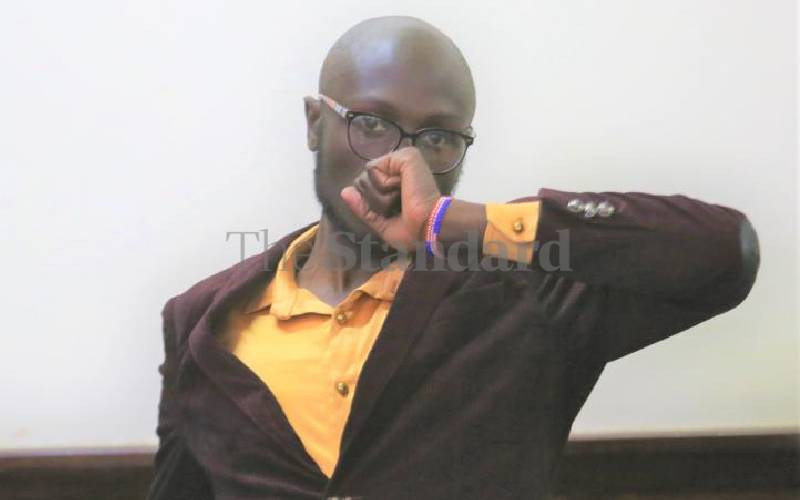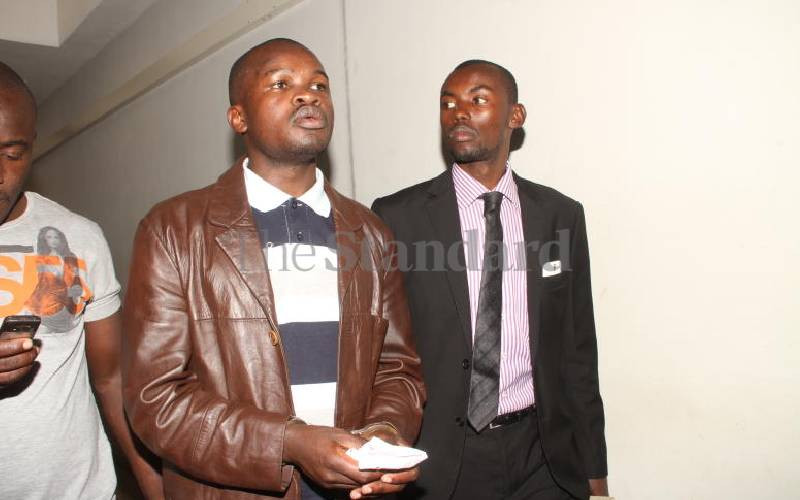USA: David McCallum was 16 when he was jailed for killing Nathan Blenner, 20, in New York - but he is now a free man after a judge agreed that DNA and fingerprints found at the crime scene did not belong to him.
A man wrongly convicted of murder has been freed after 28 years in prison after new DNA evidence emerged which cast doubt on his guilt.
David McCallum was just 16 when, along with Willie Stuckey, he was caged for the kidnap of murder of Nathan Blenner, 20, in New York in 1985.
But this week a judge overturned their convictions after agreeing that neither DNA nor handprints found at the scene of the crime matched those of the defendants.
Mr Stuckey died in prison in 2001 but his mother was present at Brooklyn Supreme Court to witness Judge Matthew D’Emic clear him posthumously.
McCallum has long campaigned to overturn his sentence, a cause championed by wrongfully convicted boxer Rubin “Hurricane” Carter.
But in court the 45-year-old said of his new-found freedom: “It is a bittersweet moment because I’m walking out alone.
“There’s someone else who’s supposed to be walking out with me.
“I’m really very happy but very sad at the same time.”
The two men were cleared after an appeal from District Attorney (DA) Kenneth Thompson.
He said in court: “David McCallum walked into prison as a boy.
“Today he will walk out of the courthouse as a man.”
Mr Thompson added: “My main duty as a DA is not just to convict, but to do justice.
"We should not have a national reputation as a place where people are railroaded and convicted of murders they did not commit.”
When police arrested Mr McCallum and Mr Stuckey in 1985 they admitted kidnapping and killing Queens resident Mr Blenner and taking his car for a joyride.
Stay informed. Subscribe to our newsletter
They later withdrew their confessions but the following year they were convicted of murder and each sentenced to 25 years behind bars.
Mr McCallum's lawyers wrote a letter to Mr Thompson in January arguing that neither DNA nor fingerprints found at the scene of the crime matched those of their client or Mr Stuckey.
The DA investigated and concluded that the pair's convictions hinged on untrue confessions, made by teenagers, rife with inaccuracies and peppered with details seemingly supplied by police.
 The Standard Group Plc is a
multi-media organization with investments in media platforms spanning newspaper
print operations, television, radio broadcasting, digital and online services. The
Standard Group is recognized as a leading multi-media house in Kenya with a key
influence in matters of national and international interest.
The Standard Group Plc is a
multi-media organization with investments in media platforms spanning newspaper
print operations, television, radio broadcasting, digital and online services. The
Standard Group is recognized as a leading multi-media house in Kenya with a key
influence in matters of national and international interest.
 The Standard Group Plc is a
multi-media organization with investments in media platforms spanning newspaper
print operations, television, radio broadcasting, digital and online services. The
Standard Group is recognized as a leading multi-media house in Kenya with a key
influence in matters of national and international interest.
The Standard Group Plc is a
multi-media organization with investments in media platforms spanning newspaper
print operations, television, radio broadcasting, digital and online services. The
Standard Group is recognized as a leading multi-media house in Kenya with a key
influence in matters of national and international interest.








